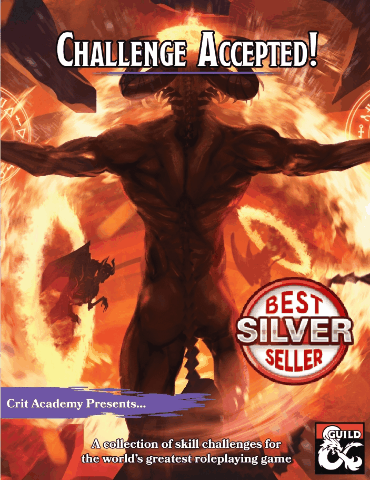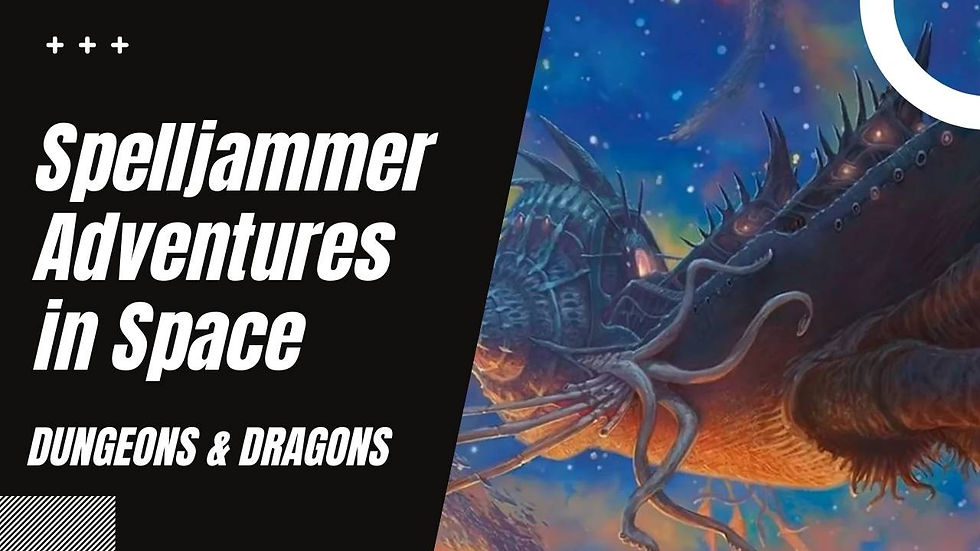2-Minute Tabletop
- Justin Handlin

- Feb 6, 2020
- 6 min read

In this episode we interview Ross McConnell of www.2minutetabletop.com,
a website dedicated to enhancing your tabletop RPG with resources created by passionate artists and game masters. They have hundreds of maps & map assets in their gallery and, more recently, we have been working on random encounter charts and how-to articles. All to help bring your Dungeons and Dragons game to the next level.
Let's talk about blank: We answer a question about giving feats based on character level instead of class level.
Unearthed Tips and Tricks: New and reusable D&D content for you to bring with you on your next adventure.
Character Concept:
Giant Dwarf
You’ve heard tell of the clan of dwarves currently traveling across the lands, and rumor
has it they’re coming to your town. When they arrive, you see their silhouettes off in the
distance: all short, squat, and bearded… except one? One of their party is tall,
slender, and he appears unable to grow more than a scraggly goatee, but the rest
of the party refers to him as a dwarf. When you try to point out that he’s not a
dwarf, all of his clansmen quickly gesture you to stop talking, and insist that he is, in
fact, a dwarf like any other.
This character is, plainly put, a human (or some other non-dwarf race) that thinks he’s a dwarf. Maybe he was orphaned as a child and grew up with dwarves, maybe he’s suffering from a mental disorder that makes him see himself as a dwarf, or maybe he actually is technically a
dwarf but he has an incredibly bizarre series of birth defects that make him grow tall and skinny and less hairy than normal.
Whatever the case, any claim that he is not truly a dwarf will likely be met with frustration, anger, and hostility. After all, he’s just a tall dwarf, and his mother told him his beard
should be coming in any day now!
Monster Variant:
The Sunderer
Origin: Berserker (MM)
This furious warrior focuses its efforts on stripping away the effectiveness of their foes
defenses. Whether they’re cutting straps that hold armor together, bashing shields away, or
just knocking its opponent off guard, they’re tactic is to reveal a weakness in the enemies
defenses long enough for them or their allies to exploit it and land a powerful blow.
New Feature:
Sunder Armor. When the sunderer uses its reckless feature and hits a target in medium or
heavy armor. It creates a momentary chink in the targets armor, the next weapon attack on the target can score a critical hit on a 19-20 roll.
Encounter Concept:
Euphoric Gas
The party is traveling through a dungeon, and they’ve just opened a new chamber that hasn’t been opened in centuries. As the door opens, a puff of dust blows into the corridor and causes all of the party members to cough and sputter for a moment. Shortly after, the party rogue begins laughing hysterically, leaning up against the wall with the largest smile on his face. Then, the wizard begins to scream and point at the ceiling before running to take cover under a nearby doorway. Meanwhile, you’re standing there with no clue as to what your allies are doing or what they can see that you can’t.
Euphoric Gas is an element that you can add to a dungeon, a trap, or even an existing
encounter to make it just a little bit scarier. When the gas goes off (wherever the DM
determines it came from), all creatures in a 10-foot cube must succeed on a DC 11 Wisdom
save, or they will be unable to take reactions for one minute. Additionally, roll a d6 every round for each affected character. On a roll of 1-4, the character can take no actions, and they will spend their turn running in a random direction (avoiding difficult and hazardous terrain). On a roll of 5-6, the character cannot take actions and cannot move, but they’re granted another save to resist the effect.
You might describe an affected creature as fleeing in terror, chasing after a glowing butterfly, paralyzed by fear, or sitting down in a warm meadow oblivious to their surroundings. If they’re affected by Euphoric Gas while already in combat…well, at least they’ll go out with a smile on their face. Hopefully.
Magic Item:
The Dancing Violin
Wondrous Item, common
This old and battered violin looks out of place in any high-society function, but when you study it up close, you realize the dents and scuff marks are signs of wear and use. The violin has clearly been used by an aficionado for many, many years. How it got here is a mystery, but when a violinist picks it up and begins to play, you can’t help but dance.
This violin has a maximum of 4 charges and regains 1d4 charges at dawn. By expending a
charge and taking an action to play it, all other creatures in 120 feet who can hear the music
in range must succeed a DC 12 Wisdom saving throw or fall under the effects of the command spell to dance. Creatures who cannot hear or be charmed are immune to this effect. The effect continues for as long as the violin continues to be played, with another save being granted each round the effect continues.
DM Tip:
Festivals!
As a DM, it’s important to kill your PCs. Before you kill them, however, let them have a little bit of fun! Plan out festivals for the players to take part in. Remember to give your festivals a reason and a theme - harvest, solstice, flood season, etc. - so that the players feel like the event exists in a living, breathing world. Describe how the local populace prepares for the festival. Describe the decorations, the vendors selling goods, and the performers that are arriving to try and make some money during the celebration. Try to plan out events that will happen during the festival (eg. parades, competitions, speeches from the local governor, and so on).
The festival could be part of an adventure. Perhaps something is stolen during the festival,
and the players need to retrieve it. Maybe an evil wizard is planning an attack on the city during the big harvest feast. Even though festival conflicts can be fun, consider having a festival just for the sake of having a festival. Let the players enjoy their well-earned rest. Let them roleplay, let them have fun by enjoying the fruits of a fleshed-out game world. You never know how much you’ll appreciate some fun downtime until you get it!
Player Tip: Don't be a Dick! You can avoid dickitude by...
Give the game your full attention!
Do you check your phone while playing D&D? Do you sometimes have small side conversations while the DM is describing a scene? Do you constantly interject with off-topic
movie quotes or reference some TV shows or a movie you saw instead of focusing on the game?
First off, nobody’s perfect, and things like this happen to all of us at some point or another.
Just try to remember: when you’re at the gaming table, you should be focused on the
game. Everyone at the table is taking time out of their busy schedule to be there, so if your turn comes around and everyone has to wait for you to figure out your action because you weren’t paying attention, then you’re using up other people’s time. I’m sure you wouldn’t appreciate it if someone else did it to you, so show courtesy to your other players (and your DM) by paying attention.
Like I said before, distractions get to us all at times. If you’re having a bad day and you don’t
think you’ll be able to pay full attention, just mention it to your DM at the beginning of the
session. Maybe he can give you an easier role for the session, maybe you can just kick back and be a spectator that day, or maybe you can just go on and play as usual. At least you will
have shown that you care enough to tell the DM in case it might be a problem. A little bit of
consideration goes a long way.
Remember: we’re all people! Let’s have a fun game together!
We hope you enjoyed your experience here on Crit Academy, if you did, please consider sharing our show and leaving a review here on itunes.
Support Us:
Subscribe to our Blog and be entered to win phat lootz every week.
Visit our website at www.critacademy.com or become a patron donor and get additional phat loot!















Comments